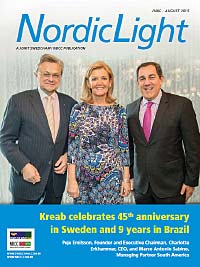 In recent years, Brazil has advanced in the adoption of legal and administrative measures aiming at promoting efforts at the international level to protect the best business practices and anti-corruption.
In recent years, Brazil has advanced in the adoption of legal and administrative measures aiming at promoting efforts at the international level to protect the best business practices and anti-corruption.
Far from being a novelty, the commitment to adopt these measures stems from the insertion of Brazil in the context of international cooperation, the origin of which is in the Convention on Combating Bribery of Foreign Public Officials in International Business Transactions of the Organization for Economic Cooperation and Development (OECD) of 1997.
In 2007, the OECD through its Working Group on Bribery in International Business Transactions approved and issued a report with recommendations to Brazil to adopt certain practical and legal adjustments in order to ensure the proper application of the Convention signed in 1997.
Precisely in this context, the Anti-Corruption Law (Law nº. 12.846/2013) was enacted defining the legal concept of various situations characterizing corruption acts as well as high civil and administrative penalties for the companies involved in these acts.
The fact is that this legislation has brought a very broad definition of corruption acts and established rules that generate controversy, such as: the strict liability of the persons involved, whose discussion on its constitutionality has already reached the Supreme Court (ADI 5.261), the possibility of compulsory dissolution of the company, the leniency agreement, etc.
However, the purpose of this article is not to analyze in detail these controversial points of the law, but rather to indicate an important tax point, which is a direct result of this issue.
We are dealing with the tax treatment given to expenses incurred by companies opting for the calculation of Income Tax through taxable income – income tax, with the possible payment of undue advantages or illegal demands by government agents or institutions.
The question is whether such expenses may be considered deductible or not in the calculation of the income tax calculation basis, because in some cases these costs may eventually and even undesirable be registered as if they were necessary and usual expenses for the activity of the company involved (e.g. costs with advisory or consultancy services).
The Brazilian Tax Law does not expressly prohibit such deductibility as stated by the OECD itself in the report published in 2007 (page 21).
However, the OECD itself ascertained that the tax authorities had already justified the non-deductibility of these expenses based on the then existing legislation considering that the payment of bribes could not be considered necessary and usual for a company’s activities.
After the 2007 OECD report, the IRS of Brazil published the Declaratory Act RFB nº 32/2009, establishing that the payments made as a reward for committing legal violations or related to them, are not deductible in determining the basis for calculating the Income Tax and social contribution.
Thus, the Brazilian legislation fighting corruption not only greatly strengthened the initiative to change such practices, but also formed the basis for enforcing legislation that sought to avoid any advantage because of such conduct.
Therefore, although there are several issues yet to be analyzed regarding the responsibility and knowledge of the corruption acts within a company, the fact is that no issue will be raised in the deductibility of expenses incurred for payment requirements or undue advantages in the ascertainment of the calculation basis of income tax and social contribution.
Once certain expenses are found to have resulted from illicit acts, there will be no alternative for companies other than the addition of this expense to the net income for taxable income and rectification of tax declarations for the correct calculation of due taxes.
Daniel Miotto was Partner at Pacheco Neto Sanden Teisseire Law Firm.
Ernani Teixeira Ribeiro Junior was an associate at Pacheco Neto Sanden Teisseire Law Firm.



